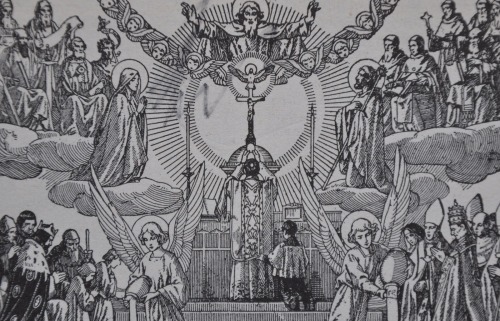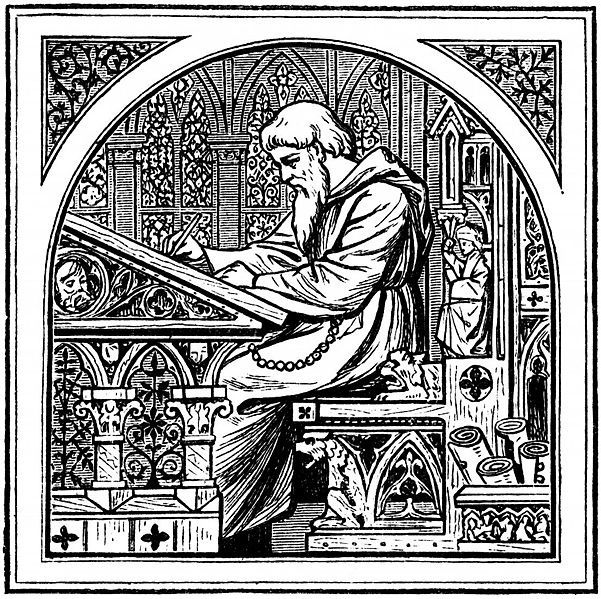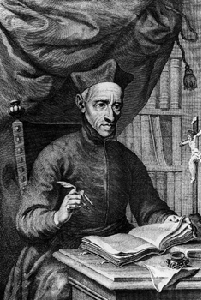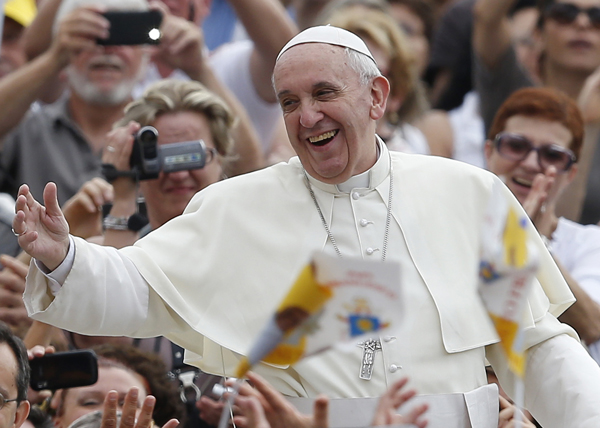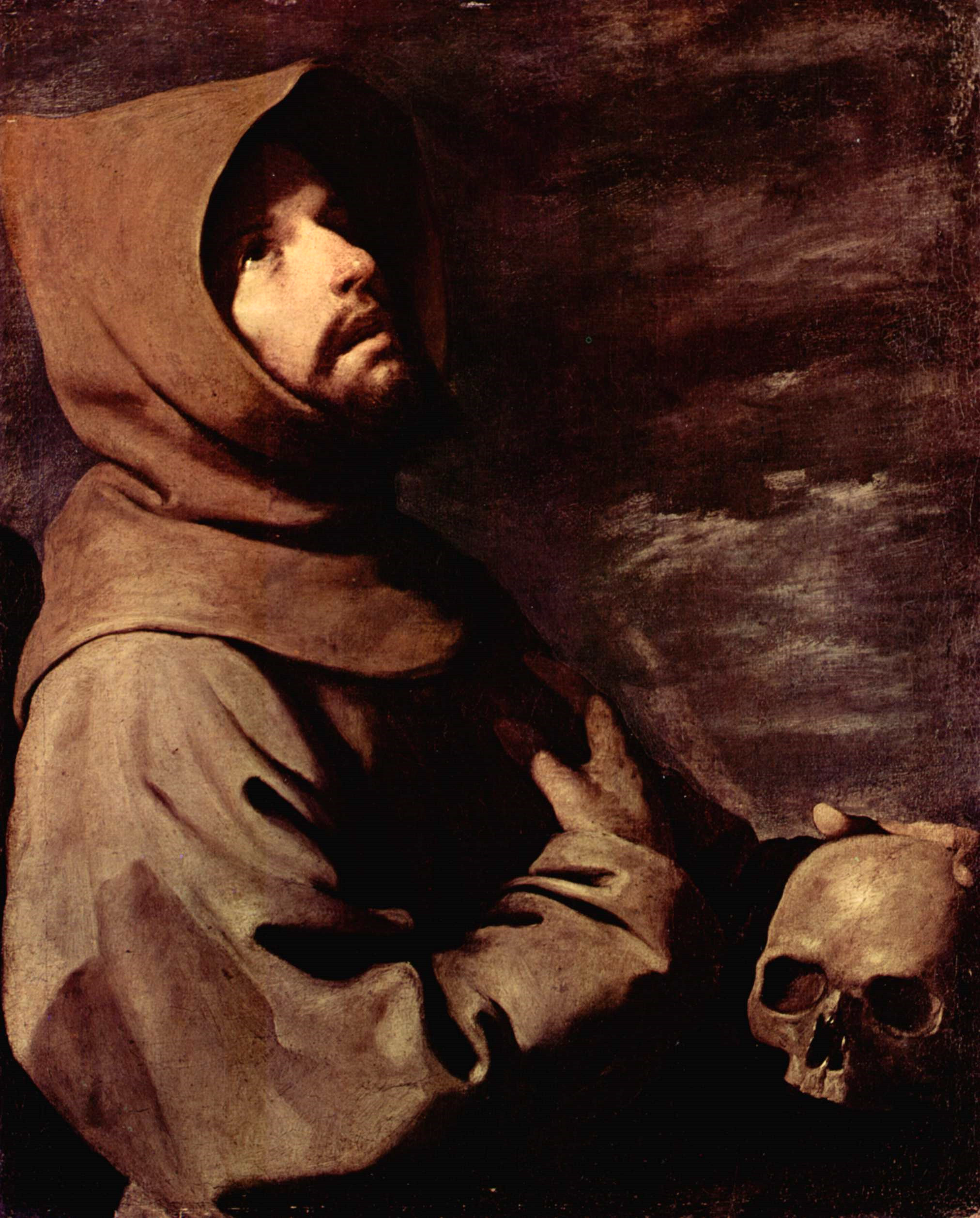Benedicta sancta Trinitias, atque indivisa unitas!
Taken from St Luke, 8:4-15.
A fundamental lesson of our Lord's words in today's Gospel highlights two aspects which I would like to develop further in this short reflection. Let us begin by considering the first which will lead into a more fruitful discussion of the latter.
1)
The universal reach of divine causality.
All that is not God is under the dominion and sway of God. All persons of whatever state, condition and means are subject to His will whether they have ever paused to consider His lordship or have ever acknowledged it. This is symbolised by the various qualities of the ground. As the great multitude pressed about Jesus anxious to hear His latest teaching and perhaps to experience a further miracle, our Lord spoke in a parable which even the Apostles deemed as beyond their understanding. In response to their question as to the meaning of the sower going out to sow, Christ said, ''To you it is given to know the mystery of the Kingdom of God, but to the rest in parables: that seeing they may not see, and hearing may not understand''. In contradistinction to Billuart I consider this to be the sacred puzzle and the toughest aspect of theology for the mind to apprehend. Why is it that God elevates one to the supernatural level and maintains them there in His grace while He permits another to be obdurate before His appeal in love? Let us not be so foolish as to believe that God grants certain indiscriminate, naked graces to all souls that they are free to accept or decline. Is God not capable of bringing forth good fruit from the harshest of soil? Is He not willing to till the ground so that the weeds are cast aside to allow the seed to grow? Is He powerless before His creatures?
We hold God to be the creator of nature and the author of grace. The fruitful reception of grace by a soul is not dependant upon the conditions of time and space which God foresees, as the followers of Molina assert, but rather it is God who turns to us and grants us life. By His divine movement He converts the soul to Himself, eliciting a truly free and human response. The soil is not 'discovered' by the sower, an analogy of the redemption love of Our Saviour, where He is incapable of turning the ground so that it is sensitive to His approach. The soil represents the soul laid bare and its quality is utterly dependant upon it's response to God's movement of redemption. Nothing else matters in this life. Is salt which has lost its saltiness is only good to be trampled upon what use is infertile soil to a grace filled, fruitful life in Christ? It is fit only to be condemned to rot.
2)
Sufficient grace is granted to all men so that they might be saved. No man may ever claim that God has abandoned him to achieve his own salvation. All men are granted sufficient grace to know and love the one true God and redeemer of the nations. We hold that God is certainly capable of saving all men if He so decreed but that in His wisdom and justice He allows certain souls to remain outside of His love, where the devil reigns in his rebellion. Through malice the bloom of efficient grace is suppressed and man can only answer for his rejection of God. No soul could ever reproach God for failing to approach him in grace. Yet too many, as Our Lord teaches, only accept parts of the Gospel to suit their own ''needs'' and to appeal to their convenience. They receive it as only a teaching of man, a lifestyle, a simple philosophy to adapt to their circumstances. It is on account of this misunderstanding of the divine foundation of the Gospel, that Satan so quickly and easily snatches away the seed that God has planted so that they may not truly believe and be saved. As it falls among thorns, it is choked by a worldly conception of God's action among us. For these unfortunate souls, God's mission of redemption is seen as weaker than the allurements of the flesh, the seed of the word of God is considered cheap and easily bought. They have refused to see that the ground was purchased by the blood of Christ. It is not the burial place of the Traitor that is the field of blood, but our own souls. No fruit is brought forth for these men who have converted the Gospel into another aspect of their lives, a token, a sentimental belief that leaves their inner nature untouched by grace. They lack supernatural faith and rely on tradition, custom or hold on to particular features of the Gospel for the sake of consolation.
The soul that is well prepared by God is receptive to His further graces. In patience they accept what He has decreed eternally at whatever moment He brings it about in time and space. Their glory before God is unending, they bring forth a hundred fold of what is sweet and pleasant in the sight of the saints.
They are the moisture of civilization. They are the instrumental causes of the fruitful reception of grace by other souls. God works through them to show His mercy to others. They predispose other men to prepare themselves for God. It is with joy that they submit themselves to the sweet yoke of Christ and His Cross, where they see only glory and opportunity rather than a burden to be shunned if possible. All other souls perish when they regard the grace of God in too human a fashion, choked by cares and ambition.
Let no man glory in his salvation but be grateful that he has been called out of nothing to be raised to a formal participation in the divine nature by grace. Let the reprobate condemn himself for his hardness of heart and stiff neck. Let God be glorified in all things.
In Domino,
Charles Stuart.








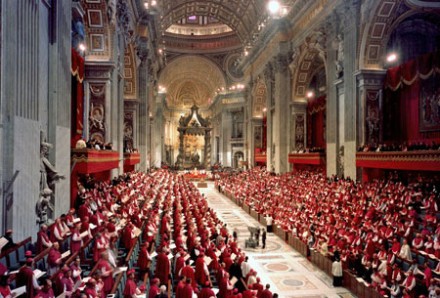






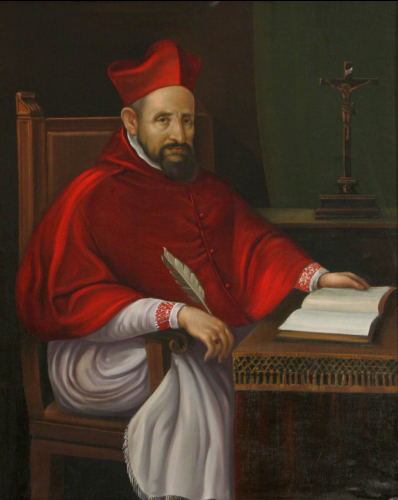
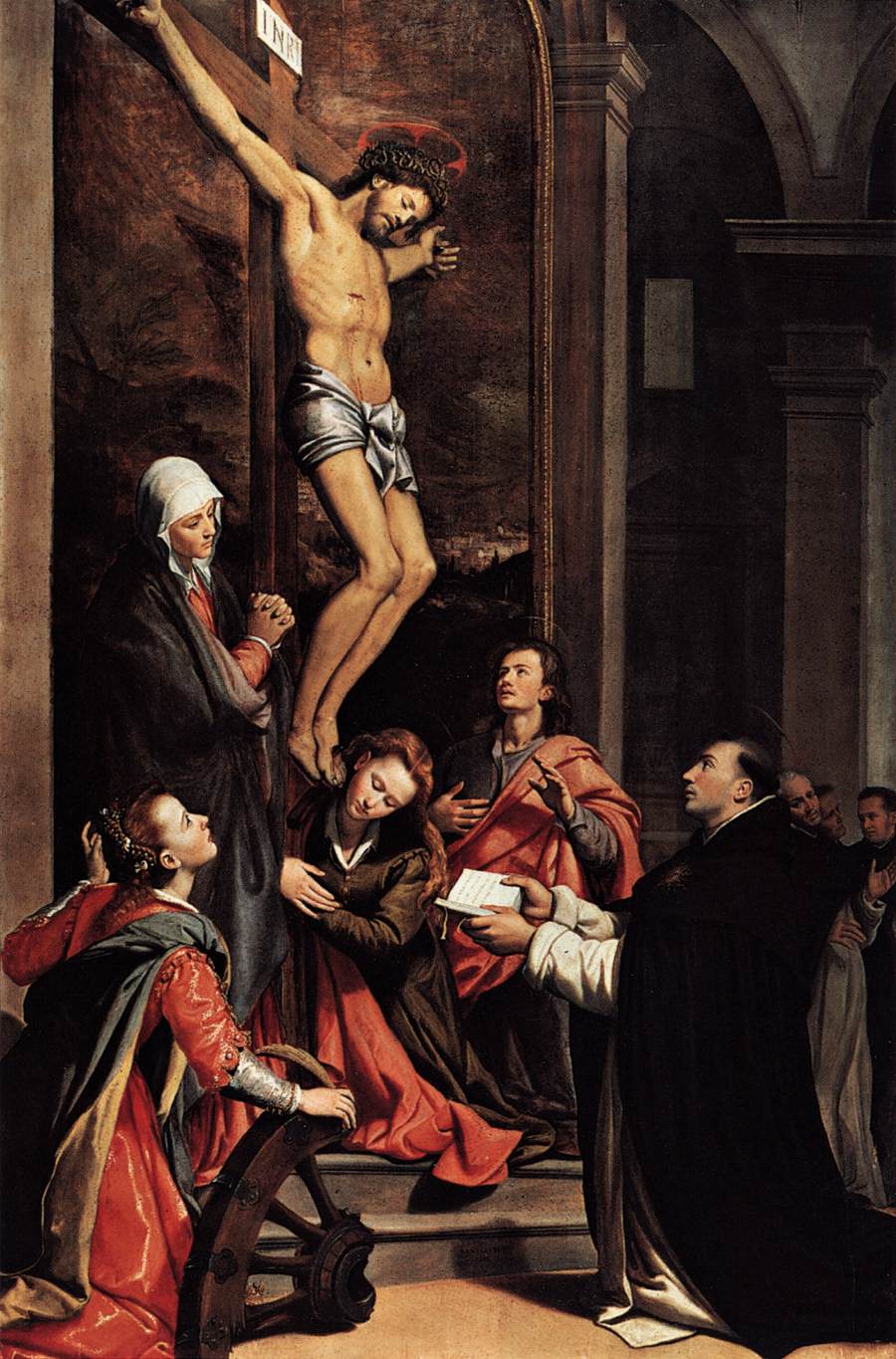

_-_WGA25635.jpg)

